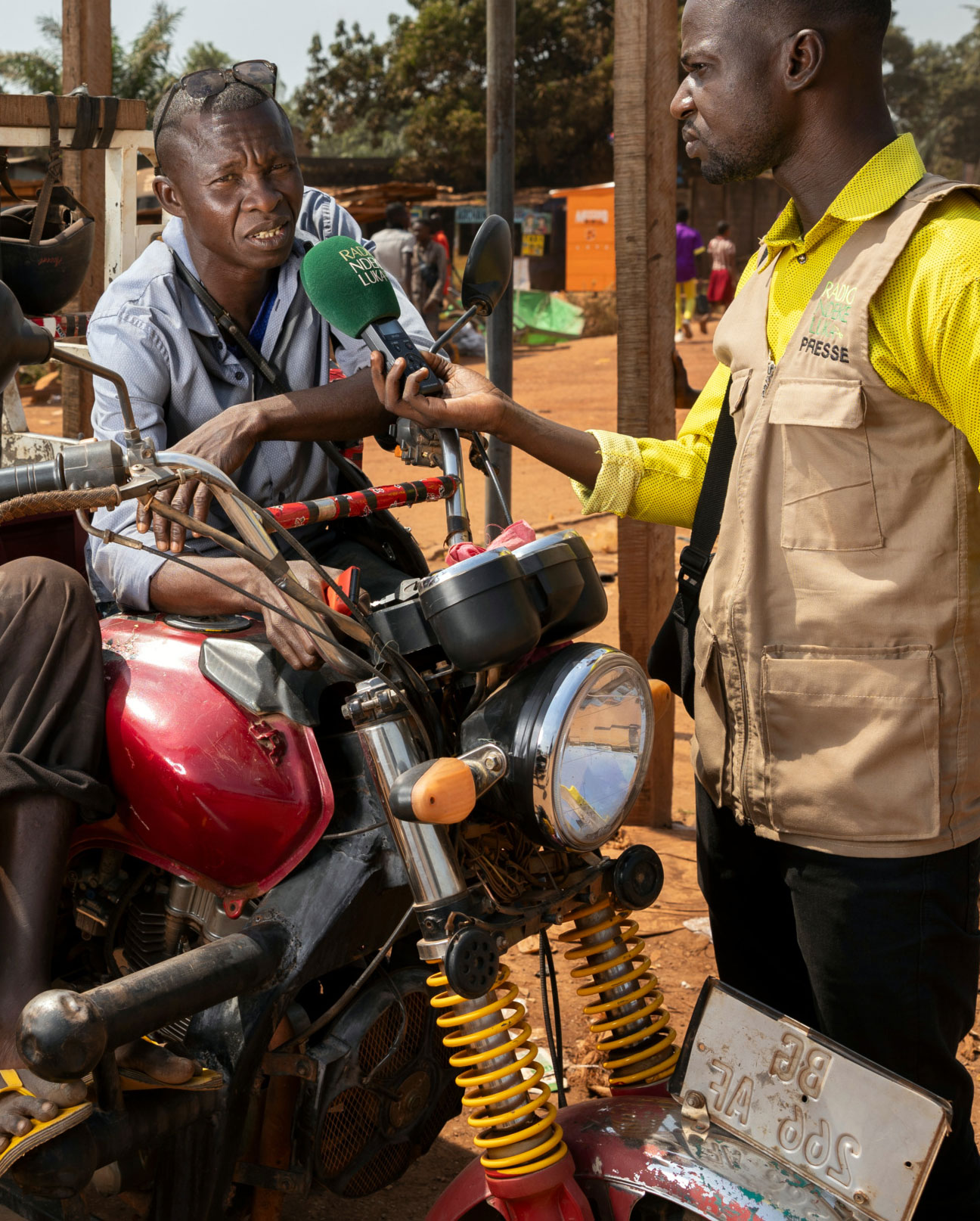Giving everyone a voice, especially the most marginalised. Using all broadcast methods to reach all populations, especially the most remote. Prioritising local media, which are the best equipped to respond to information needs. These are Fondation Hirondelle’s contributions to social cohesion and peace.
THE MEDIA: SPACES FOR DIALOGUE
When citizens lack a safe space to express themselves, confidence is eroded and tensions mount. Fondation Hirondelle develops inclusive media that give all segments of society a voice. Our programmes encourage participation in public debate and provide platforms where anyone can speak and contribute to collective solutions. We use diverse methods to reach a wide audience: radio, television, social media, websites and interactive tools such as WhatsApp and toll-free numbers.
RESTORING CONFIDENCE THROUGH DIALOGUE
Building a society means listening to all segments of that society. By providing impartial and accessible journalism, our media give citizens the opportunity to express their concerns, call on decision-makers and understand different points of view. Our media foster dialogue that strengthens confidence in peaceful and joint solutions to daily crises and challenges. To be heard is to find one’s place in society, and to believe in the possibility of shared, non-violent solutions.
MEDIA FOR INCLUSION
We work to ensure that marginalised voices—in particular, those of women, young people and rural populations—are heard in public debate, peace processes and public deliberations. We enable these groups to be fully involved in political discussions and debates on all issues relating to public and daily life. Beyond simply providing access to information, we ensure balanced representation and meaningful involvement for all, with the aim of highlighting diverse perspectives and fostering a more equitable society. In this way, professional, balanced and inclusive journalism contributes to restoring confidence and strengthening the social fabric.
In fragile contexts such as Mali or Ukraine, our media projects play a key role by bolstering community ties and fostering peace. In Ukraine, faced with the challenges posed by the ongoing conflict, we are working with the International Institute for Regional Media and Information (IRMI) to support local media. A 2024 sociological study that collected feedback from 2,391 participants in 23 communities revealed that local media are perceived as being better equipped to respond to people’s information needs than national media, which are often seen as being far removed from local reality. These results highlight the key role of local media in fostering social cohesion by giving a voice to those involved, and the need for strengthening the ability of journalists to provide reliable and relevant information.


